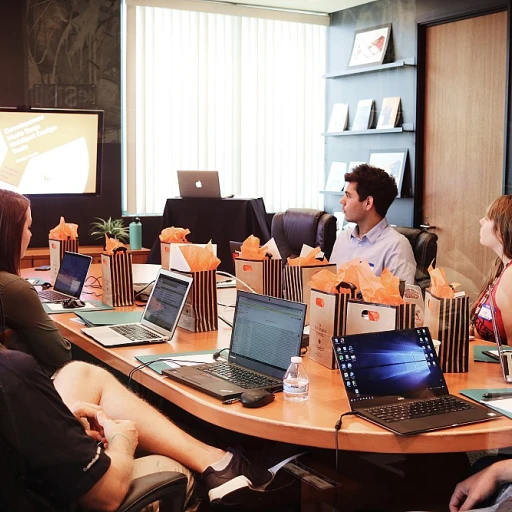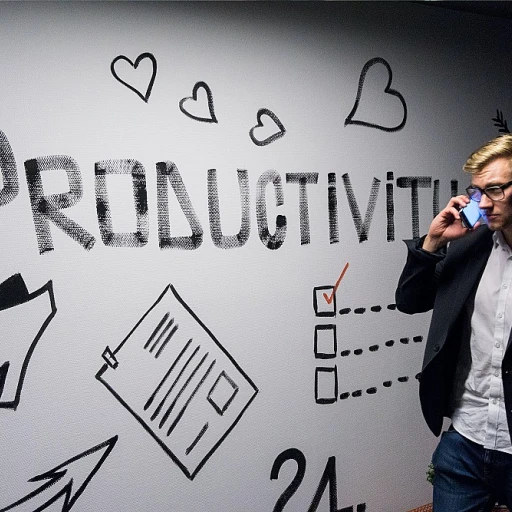
Understanding Employee Competencies
Decoding Core Competencies in the Workplace
When discussing employer branding and the role of core competencies, we enter the realm where skills and abilities meet company values and culture. At its heart, employee competencies refer to the mix of skills, knowledge, and behaviors that individuals need to perform their job effectively. These are not merely the technical skills but a tapestry of varied abilities, including soft skills like communication, teamwork, and problem-solving.
Companies increasingly focus on these competencies as they forge more profound connections between their workforce and their goals. Through a skills-based approach, employers can align their workforce with strategic objectives, ensuring that employees can adequately address long-term needs and unforeseen circumstances. This alignment fosters a workplace powered by shared goals and development opportunities, catalyzing a culture of continuous improvement and employee engagement.
Adaptation in the labor market underscores why measuring and evaluating competencies is crucial. Employers now require a more sophisticated understanding of their workforce to remain competitive, often shifting towards competency-based hiring strategies. This change supports flexibility, allowing companies to hire for potential rather than merely ticking academic degree requirements or specific past experiences.
Competencies are the cornerstone for professional development and employee training programs, ensuring employees have access to relevant skills-based learning. Such programs are instrumental in developing a workforce equipped for complex problem solving and critical thinking tasks. This equips employees for career development, aligning individual ambitions with company growth.
The Shift Towards Competency-Based Hiring
The Evolving Focus on Employee Skills
In today's dynamic labor market, companies are increasingly shifting towards a skills-based approach for hiring. This trend prioritizes competencies over traditional degree requirements, allowing employers to tap into a diverse talent pool. With the demand for specific skills soaring, organizations are realizing the importance of aligning job postings with critical competencies such as problem solving and critical thinking. The focus on skills-based hiring has led to a transformation in how employers assess candidates. Instead of solely relying on academic qualifications, companies are evaluating professional skills that are essential for the specific job role. This practice not only widens the scope of potential employees but also ensures that the workforce is well-equipped for the challenges of the modern work environment. By emphasizing competency-based hiring, companies can better identify potential employees who are prepared to contribute effectively from day one. Employers now recognize that the professional development of their workforce is crucial for long-term success. Through tailored training development programs, organizations are investing in developing the competencies that matter most. For those interested in further exploring this shift towards competency-based hiring, you may find insights on the significance of recruitment fairs in employer branding valuable. These events are becoming vital opportunities for organizations to showcase their focus on employee development and attract top talent equipped with the right skills.Competencies and Company Culture
Integrating Competencies into Company Values
The role of competencies in shaping company culture and values cannot be underestimated. As job postings increasingly highlight the need for specific skills, employers are recognizing the importance of integrating these competencies into their organizational culture. This alignment not only helps in selection but also in ensuring that the workforce shares a common understanding and approach to work. Companies are now employing a skills-based approach to foster a strong culture. By embedding competencies into their values, organizations create an environment where employees can develop professionally and access development opportunities. This holistic approach ensures that skills align with the company's long-term goals and employees' career aspirations. Moreover, a company culture that prioritizes skills and competencies can better support employee training, enhancing both soft skills and critical thinking. By aligning training programs with career development, companies not only address degree requirements but also facilitate training development aligned with market needs. For companies seeking to enhance their image, the integration of competencies into their ethos helps in attracting and retaining critical talent. In fostering a culture that prioritizes skills and competencies, companies can offer better development programs that focus on problem solving and professional development. This alignment ultimately provides workers with a robust framework for growth in the labor market. For more insights on leveraging competencies to enhance your company's image, explore further strategies on enhancing your company’s image through job branding.The Role of Competencies in Employee Development
The Value of Developing Core Competencies
In today's competitive job market, the concept of employee development has evolved to revolve around the enhancement of employee competencies. Employers recognize the need for continuous career development as they strive to maintain a skilled and adaptable workforce. As the labor market becomes more dynamic, companies are employing a skills-based approach to ensure their employees possess both the necessary job skills and soft skills essential for success. One of the driving forces behind this trend is the acknowledgment that traditional degree requirements are not the sole indicator of an employee's potential. Increasingly, organizations are investing in development programs and training initiatives designed to nurture critical thinking, problem-solving abilities, and other competencies essential for long-term success. This shift not only aids in talent retention but also helps in preparing employees for future opportunities within the organization. Employers have started to recognize that a focus on employee training and skills-based hiring practices fosters a conducive environment for professional development. Such development opportunities are pivotal for workers seeking to advance in their careers. By adopting competency-based methodologies in human resources, companies are able to refine their training programs, emphasizing relevant skills that align with company culture and goals. The implementation of these practices ensures that employees are not only equipped to perform their current roles efficiently but are also prepared to take on greater responsibilities as they progress. Whether through structured training programs or on-the-job development, employers are realizing the immense value of investing in their employees' professional journey. In summary, the role of competencies in employee development is gaining prominence as companies place greater importance on skills rather than traditional educational backgrounds. By focusing on the holistic development of their workforce, organizations can create a resilient and future-ready team.Measuring and Evaluating Competencies
Evaluating Workforce Skills and Competencies
The world of work is evolving, and with it, the importance of accurately measuring and evaluating workforce competencies. This focus allows employers to match skills-based job requirements with appropriate talent, ultimately building a more robust workforce. To successfully evaluate the competencies of employees, several tools and strategies can be employed:- Competency Frameworks: These frameworks help define and categorize the skills and capabilities needed within a company. By establishing clear benchmarks, employers can assess individual competencies in relation to the company's expectations.
- Performance Reviews: Regular performance reviews provide opportunities for feedback, goal setting, and discussions around professional development. They enable the tracking of employee progress and identify development opportunities.
- Skills Assessments: Through various assessments, employers can evaluate both hard and soft skills. Critical thinking and problem solving assessments, for instance, offer insight into how well employees can manage complex challenges.
- Training and Development Programs: Customized training programs tailored to address gaps in skills or competencies encourage continuous improvement and support career development.













